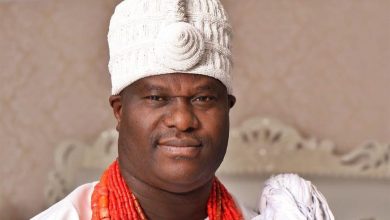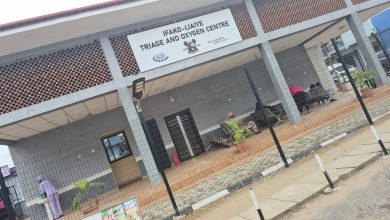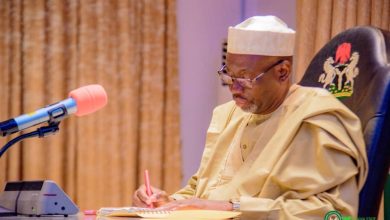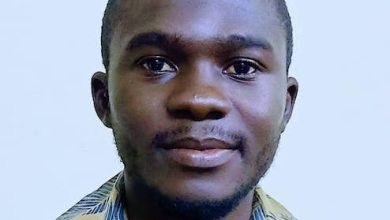UN retirees host Ukrainian refugee families
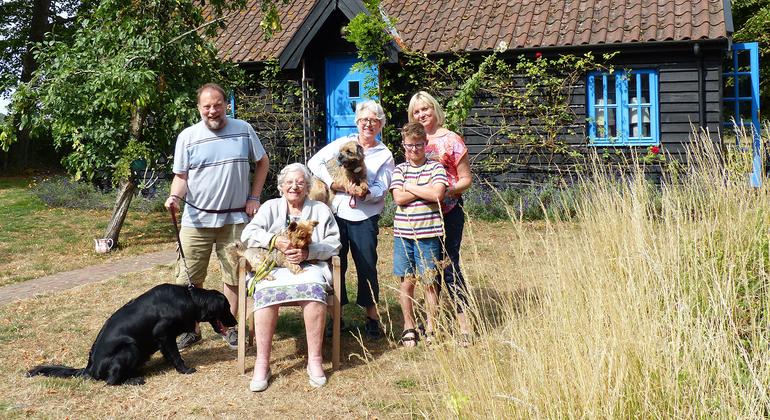
Oksana and 11-year-old Sasha are among more than 100,000 Ukrainians who have been welcomed into homes across the United Kingdom following Russia’s full-scale invasion of Ukraine in February 2022. Jane Howard and Laurens Jolles, who met them when they arrived in the UK, said “it seemed a natural thing to do”.
Forced to work
Oksana and Sasha lived in the Kyiv suburbs that were under fire during the first few weeks of the war. When they arrived in the UK, they did not speak a word of English, and had traveled outside of Ukraine.
“I was too scared to go,” Oksana said. “I’m sad because I don’t know the language and culture of this country. I don’t know how I will be able to find the perfect language for all the guests.”
But, it is “very easy”, he said.
“Jane and Laurens met us at the airport and from the first minute we met I knew I was among very kind people,” she said.
Laurens, who has worked at the UN Refugee Agency, UNHCR, for 35 years, said he and Jane have personal space to offer.
While Laurens’ job at UNHCR is to try to convince governments to open their doors to refugees and to ensure that the population supports them, he says that “being on the other side now and showing that it’s possible to be inside I’m very happy to do it.”
City of Irpin, in Kyiv region, Ukraine.
‘Priceless’ support
Upon arrival, Oksana and Sasha faced bureaucratic problems, including opening a bank account, finding a school, and signing up with a doctor.
“Jane and Laurens took their time to help us with everything,” Oksana said. “Their support, moral and material, was invaluable.”
One of the biggest problems is finding a job for Oksana, who has previously worked as a teacher and as a human resources manager.
The local employment agency may offer agricultural work where English is not required, but instead encourages Oksana to learn English to try and secure an office job.
“Oksana has come from zero to be able to chat really well,” Jane said, adding that she has since found work as a kitchen assistant.
It takes a village
Given the limited public transportation in their rural area, Jane and Laurens have provided their guests with bicycles, and taught Oksana to drive a manual car. Meanwhile, Sasha has progressed in the local village school.
“The school has pulled out all the stops by offering extra help through a teaching assistant,” Jane said. “They have paid for your school uniforms. You get free school meals. But, more than that, children are very welcome. “
Community support has also been important, they all agreed. The library bought children’s books in the Ukrainian language, packs of toiletries were given out when the refugees arrived, and the local food bank also provided assistance.
Jane and Laurens get paid by the UK government and the local authority, who do the first background checks on the soldiers, check on everyone’s welfare.
Discovering different cultures
The experience of living together has allowed each of them to learn more about their cultures.
Oksana has introduced her hosts to Ukrainian food, from borshch to pelmeni alongside what Jane describes as “amazing desserts”. Laurens has noted among their Ukrainian guests “the fact that family is important”, as well as “respect for elders”.
Oksana also does traditional embroidery to make jewelry such as earrings and necklaces from rope.
“For a refugee, it’s very important to stick to their culture,” Jane said. “When they arrived, they didn’t have any luggage except two small backpacks sopilka, a Ukrainian folk instrument a bit like a flute. That really makes you think. If you’ve got a little bag to fill, you still bring something that reminds you of home.”
Lasting values
As former UN staff, Jane and Laurens’ professional experience influenced their decision to host refugees.
Jane said: “You never lose that desire to change things or help people.
“I’ve seen how hard it is, and I’ve seen how incredibly flexible people can be and how useful a little help from other people can be,” Laurens said.
‘The feeling of a big family’
Oksana now faces a difficult choice on whether to return to Kyiv to care for her elderly mother, or to remain in the UK. Whatever your decision, Jane says you’re “always welcome.”
The experience for them has been “extremely positive”, he said, adding that “we don’t regret a minute.”
For Oksana, he said he was “happy to fate” for meeting Jane and Laurens, praising “self-sacrifice, kindness, virtue, and concern.”
“They give us a shelter, a comfortable home, confidence in the near future, security, and most importantly, the feeling of a big family in which you will understand, support, and help.”
Jane urged people to remember refugees “need your help all year round”.
Laurens warns against listening to “negative rhetoric”.
“We should not forget that we may be refugees one day,” he said. “So, treat people the way you want to be treated.”
Learn more about how the UN is helping Ukrainian refugees here.




